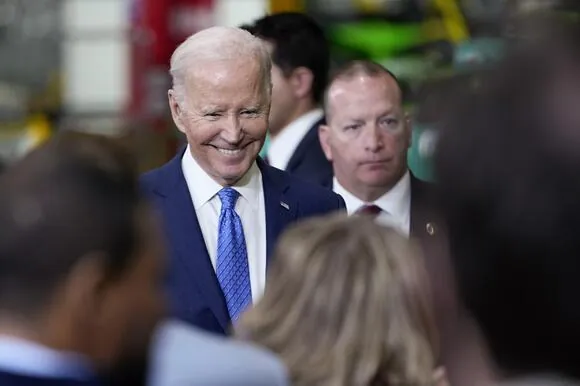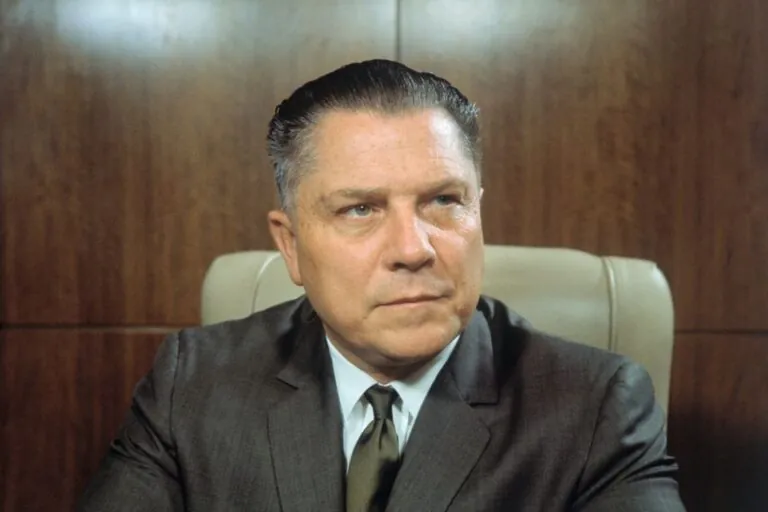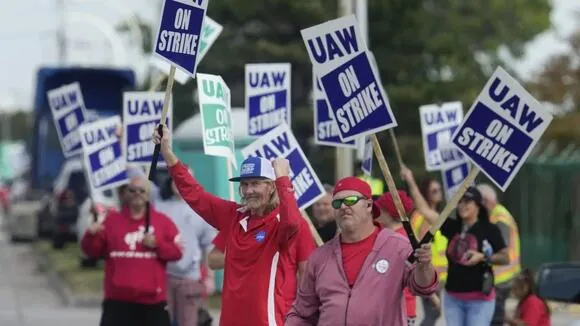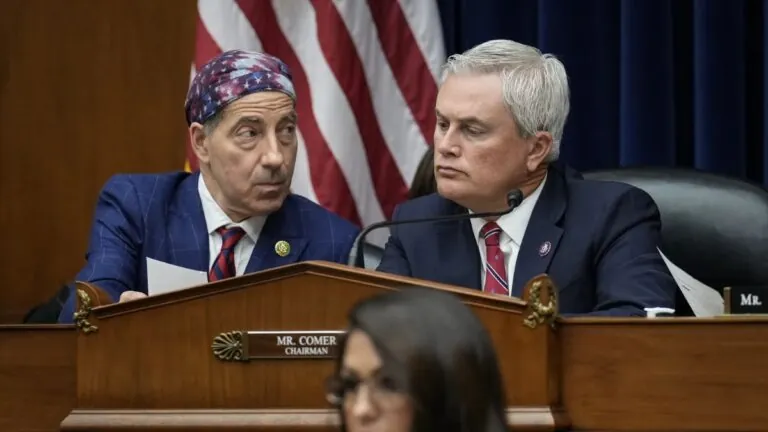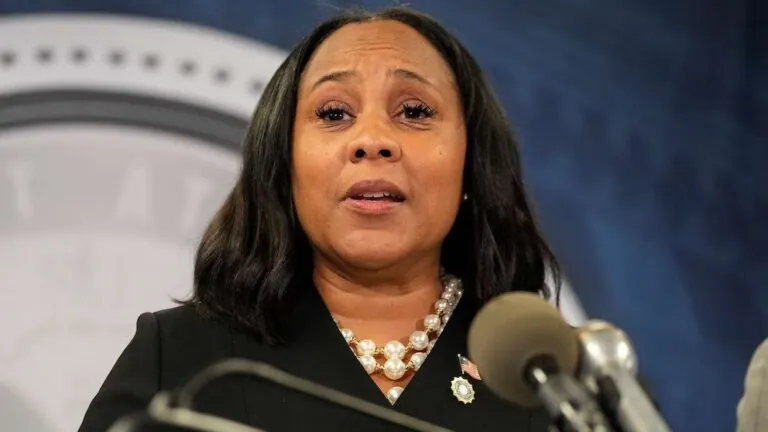Joe Biden Blunders Big in New Hampshire
President Joe Biden’s decision to remove Iowa and demote New Hampshire from its first-in-the-nation status, replacing them with South Carolina, was aimed at avoiding a primary challenge that could potentially harm his chances in the general election. However, it appears that this move may have opened the door to exactly what he was trying to prevent.
Despite Iowa’s acquiescence, New Hampshire has staunchly refused to relinquish its coveted position, responding to the request with the same enthusiasm as they would to conceding the superiority of Dunkin’ coffee or surrendering the Red Sox. Even the prospect of losing delegates in a single primary election was insufficient to persuade the state to abandon a 123-year-old tradition that mandates New Hampshire as the first primary, as enshrined in state law.
It was not surprising that New Hampshire refused to budge on their stance, and President Biden should have seen it coming. However, he allowed his personal feelings towards Iowa and New Hampshire, where he was unsuccessful in his previous three presidential attempts, to influence his decision-making. Additionally, his desire to show gratitude to South Carolina, which played a significant role in his victory, also played a role in his thought process.
In January, New Hampshire will hold its presidential nominating election once again. However, Joe Biden, the current president, will not be on the ballot. In order to ensure his victory, Democratic insiders in the state are working to organize a write-in campaign. This may have been the end of the story, had it not been for the events of last Friday.
As the deadline for filing in New Hampshire approached, a sincere congressman from the Midwest revealed that he was not entirely without cunning. In the words of George Washington Plunkitt, a renowned leader of Tammany Hall, he recognized his chances and seized them.
With the excitement of a young child gazing up at a T-Rex replica and the exuberant spirit of his political hero, Hubert Humphrey, Congressman Dean Phillips (D-Minn.) expressed his amazement by uttering consecutive “wows.” He then proceeded to sign his declaration of candidacy and paid the $1,000 fee to secure a spot on New Hampshire’s presidential ballot.
With the ferocity of a T-Rex, he proceeded to exploit the vulnerabilities of New Hampshire.
Phillips shared with the audience, which included photographers, reporters, and state officials, his fondness for his country, which he developed while spending his summers at a camp located in the White Mountains of New Hampshire. Although technically situated in Maine, the camp is located along the New Hampshire border, as reported by the Union Leader. During the event, Phillips disclosed that he inscribed “I love New Hampshire” on the paperwork.
After making the announcement, Phillips retreated to the adjacent room where he was met by a group of New Hampshire reporters. He took a seat and was asked one of the simplest questions he may ever receive.
Phillips affirmed that he would reinstate the state’s position at the beginning of the presidential nomination process, stating “Yes.” He firmly believes that New Hampshire has valuable lessons to offer the country, and it is imperative that we learn from them.
Terry Shumaker, a prominent figure in Democratic politics, observed the scene with a sense of apprehension. Shumaker, who had previously demonstrated his loyalty to Bill Clinton during the 1992 presidential race, is intimately familiar with the dynamics of New Hampshire primaries. As he witnessed a 54-year-old candidate who was financing his own campaign, espousing idealistic views, and criticizing the corrupt fundraising practices of Washington, while pledging to engage with New Hampshire voters one town hall at a time – Shumaker knew that this candidate’s message would resonate with independent-minded voters in a state where independents can sway the outcome of primaries. As an experienced player in New Hampshire politics, he had seen enough races to recognize the factors that make a difference in this unique political landscape.
According to Shumaker, the president’s team and the national party made a significant error in removing them. He stated that this action was unnecessary, and there was no valid reason for their displacement.
According to sources, although Shumaker may criticize staff members for certain decisions, it was actually Biden who desired to rearrange the Democratic Party’s nominating calendar and place South Carolina as the first state. This decision was made in recognition of the state’s pivotal role in revitalizing Biden’s campaign in 2020, and to acknowledge the influential role that moderate Black voters play in shaping Democratic primaries in South Carolina. It’s worth noting that Shumaker has been a longtime supporter of Biden, dating back to the president’s first presidential campaign in 1987.
While it remains to be seen whether Phillips’ concerns regarding Biden’s candidacy in New Hampshire will come to fruition, the candidate appears to be grappling with the decision of whether or not to criticize the current president. During a recent interview, Phillips seemed to waver between praising Biden and subtly criticizing his age and economic record. Interestingly, Phillips isn’t running on a platform that critiques Biden’s policies, but rather on the idea that he may not be a viable candidate.
Although Phillips didn’t kick off his campaign by using “summer” as a verb, his attempt to connect with voters by reminiscing about his sleepaway camp days in the state where he grew up as an heir to an alcoholic-beverage fortune could be seen as somewhat naive and open to ridicule. In fact, some influential Democrats reportedly tried to persuade former Ohio Representative Tim Ryan to enter the race against Biden instead, as his more down-to-earth approach might have resonated better with voters during this period of economic uncertainty.
The issue of Phillips’s shotgun marriage with Steve Schmidt, a former GOP consultant known for his aggressive tactics, is another thing to consider. While this partnership could potentially yield great results, it could also become a source of distraction.
It is possible that Phillips will choose not to run for office if he believes that his candidacy will only serve to benefit former President Donald Trump by diminishing the chances of President Biden’s re-election. This decision could have significant implications for the upcoming election.
Last week, the congressman attempted to contact Biden, but unfortunately, the President refused to take his call. Philips was visibly disappointed when he spoke about the incident on Friday. He shared that Biden’s legislative affairs director, Shuwanza Goff, informed his chief of staff that the White House was already aware of the news and a phone call was unnecessary. It seems like the opportunity for a conversation may have passed.
As soon as Phillips entered the race, it created a predicament for Biden, who was striving to downplay the significance of the contest. The fact that Phillips is now in the running has added a new dimension to the race and has made it difficult for Biden to ignore.
Former Vice President Joe Biden faces a dilemma in the New Hampshire Democratic write-in campaign overseen by well-connected individuals such as former state party chair Kathy Sullivan and veteran strategist Jim Demers. Biden risks handing the primary to Phillips if he urges his supporters to stand down. On the other hand, if the group goes ahead with the write-in campaign, Biden must win to avoid the same fate that incumbent presidents have faced in the past, such as when Estes Kefauver helped drive Harry Truman out of the 1952 presidential race.
It’s important to keep in mind that previous presidents who held office before the current one have won the state of New Hampshire in the past, but that doesn’t mean they weren’t impacted by the strong showing of their opponents. This includes notable figures such as Lyndon Johnson in 1968, who only just managed to defeat Eugene McCarthy, who was a write-in candidate. Gerald Ford in 1976 and George H.W. Bush in 1992 also had to fight off challenges from opponents on the right, and unfortunately, all of them failed to secure another term in office.
While some argue that New Hampshire’s primary is no longer relevant since no delegates are at stake (unless the D.N.C. changes its stance), it’s important to note that delegate accumulation was not the primary focus in most of the races. Rather, it is the perception of the state’s results that can significantly impact and shape the campaigns.
According to Steve Duprey, a political veteran of New Hampshire with over 50 years of experience, the potential benefits for Biden are slim while the risks are high. Duprey, who previously served as the state GOP chair and was a trusted ally of former senator John McCain, cast his vote for Biden during the 2020 elections.
According to Duprey, it is imperative that he does not ignore or take New Hampshire for granted, as doing so could result in a loss. Conversely, if he puts all his effort into the state and still fails, the outcome would be even more detrimental. Therefore, the only viable option is for him to secure a victory in New Hampshire.
Perhaps enticing Biden to join the race, even if only symbolically, would be a fitting punishment for those who guarded the state’s primary. However, it’s worth examining why New Hampshire’s political leaders may be particularly touchy right now.
It seems that one political party has completely turned its back on Iowa and even tried to diminish the importance of New Hampshire. On the other hand, the opposing party is on the verge of selecting a candidate who doesn’t pay any attention to the customary traditions that these two states supposedly hold dear and consider special.
Despite being a popular celebrity and de facto incumbent for many Republicans, Trump has not been holding any house parties, town halls, or debates. Interestingly, he followed the same routine of flying in for a rally and leaving in the 2016 elections, and it did not harm his chances in New Hampshire. This begs the question, if he can repeat this approach and still emerge victorious, what sets this state apart from the others?
During his recent visit to Florida, I asked Governor Ron DeSantis a similar question and his response was just as enthusiastic as Phillips’.
According to DeSantis, Trump’s decision to avoid interacting with voters or other candidates may backfire as the nomination draws closer. He believes that those who believe they are entitled to the nomination will suffer as a result. DeSantis emphasized that the nomination must be earned, and voters expect candidates to engage with them and demonstrate their qualifications. In other words, the ability to “kick the tire” is essential for gaining the voters’ trust and support.
It’s unlikely to happen with Trump, but there are plenty of New Hampshire leaders who find such appeals charming. Their concern stems from the fear of losing a valuable franchise, both politically and monetarily, for the state.
According to Tim Lang, a Republican state senator from the Laconia area, Trump will likely face consequences for not fulfilling his responsibilities and attending important events. Lang believes that Trump should have been present and engaged, and failing to do so will not go unnoticed.
During a Republican candidate forum in Nashua, I had the opportunity to converse with Lang. This type of forum is vastly different from those that Trump typically attends. During the event, Lang, a top surrogate, introduced his favored candidate to GOP voters by emphasizing the importance of campaigning in a way that resonates with the citizens of Granite State.
Retired Gen. Don Bolduc praised Nikki Haley for her unwavering commitment to the First In The Nation primary. He emphasized Haley’s dedication by mentioning the numerous town hall meetings she has conducted.
As much as it may seem like a case of self-absorption from a state that is holding on to its fading traditions, it cannot be ignored that Iowa and New Hampshire have already transformed into soundstages for primaries that are becoming increasingly nationalized.
As someone who has covered numerous races in New Hampshire, I can attest to the fact that showing up is crucial in winning over voters. As Duprey accurately stated, New Hampshire voters appreciate candidates who put in the effort to connect with them directly.
Phillips has set his sights on an ambitious goal as he begins his campaign – to surpass McCain’s record of total town halls held. This is a challenging task given the limited time of two and a half months before the expected primary date in mid-to-late January in New Hampshire. Nevertheless, he is determined to achieve this feat and make a mark in the political landscape.
Similar to McCain’s 2000 presidential campaign, Phillips plans to provide the press with ample access to his campaign. During his recent bus tour with journalists and photographers, the bus was already adorned with his father’s old baseball glove and a collection of books, including J. William Fulbright’s “The Arrogance of Power.” Phillips gave a sneak peek of what he plans to communicate to New Hampshire voters during the tour.
According to Phillips, there’s a distinctive culture of civic engagement in this state that sets it apart from the rest. He believes that individuals in the state are dedicated to thoroughly evaluating potential candidates who could potentially impact the entire country. This doesn’t imply that other states’ opinions don’t matter; they hold equal importance. However, the tradition of commencing the selection process in this state has been set for a reason.
When asked about Biden’s move to delay New Hampshire’s primary, he expressed his concern that it would unfairly affect the state’s voters. He saw it as an attempt to “disenfranchise” them, and was not in favor of the decision.
According to Phillips, there have been many leaders in the country who tend to alter the rules whenever it does not align with their interests.
This report was made possible with the contribution of Benjamin Johansen.
More News:

